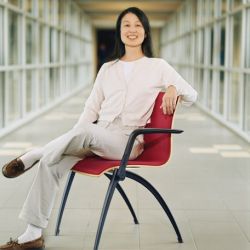Jeannette M. Wing discusses peer review and its importance in terms of public trust. Ed H. Chi writes about alternatives, such as open peer commentary.
Jeannette M. Wing
Call to Arms: Science and Engineering For Privacy
It is our responsibility as scientists and engineers to understand what can or cannot be done from a technical point of view on privacy.
I told three stories at PCAST — The Google Story, Model Checking, and Machine Learning — as a way to illustrate the importance of sustained federal funding of basic research in computer science, the rapid pace of innovation in our field, and the deep scientific contributions we offer besides our obvious technological ones.
At the most recent Snowbird conference, there was a plenary session during which the panelists and audience discussed the peer review processes in computing research, especially as they pertain to a related debate on conferences versus journals. It’s good to go back to first principles to see why peer review matters, to inform how we then would think about process.
NSF Funding Advice; 21st Century Innovation
Jeannette M. Wing shares useful suggestions for department heads. Daniel Reed discusses the importance of synergy among computing specialists and generalists.
CS Woes: Deadline-Driven Research, Academic Inequality
In excerpts from the BLOG@CACM expert blog, Jeannette M. Wing writes about the negative effects of deadline-driven research, and Mark Guzdial discusses the role of computer science faculty in fostering inequality.
Today's practice of a deadline-driven approach to research is potentially bad for our field. Instead, our focus should be on the quality of the research we do. And our goal should be on advancing the frontiers of science and engineering.
Jeannette M. Wing writes about the need for a comprehensive research agenda, Daniel Reed discusses high-performance computing, and Mark Guzdial shares insights about women in computing.
A call to the computer science community for what a research agenda might look like for the role of information and communications technologies in energy, the environment, climate science, and more broadly, sustainability.
In February, President Obama pegged Melissa Hathaway of the National Security Council to do a 60-day review of the nation’s cybersecurity policy. Midway through the 60 days, her office called me at the National Science Foundation asking me to reach out to the academic community of researchers and educators for their input.
Shape the Future of Computing
ACM encourages its members to take a direct hand in shaping the future of the association. There are more ways than ever to get involved.
Get Involved


